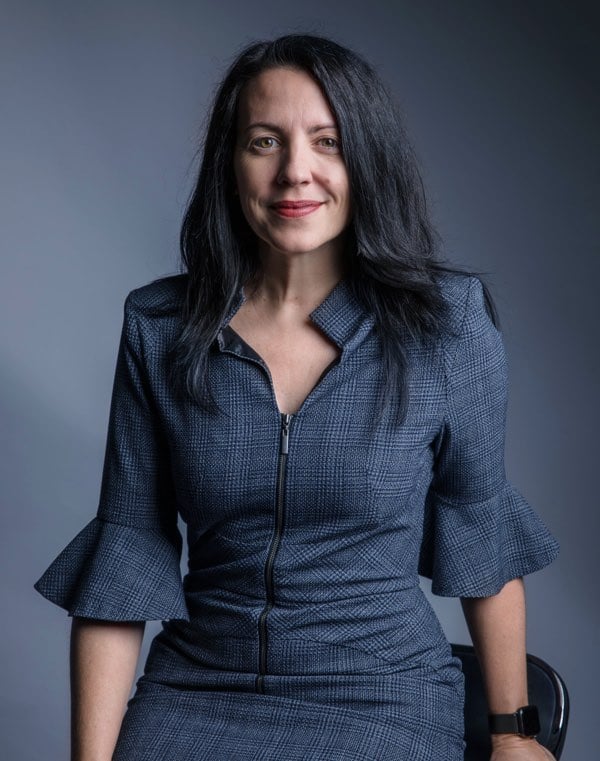Despite new research showing graduates remain in high demand during the COVID-19 pandemic, many potential MBA students still hold concerns about embarking on the world’s most popular management qualification.
Most MBA programs have undergone fundamental changes in recent years to address students’ reservations and concerns.
MBA News spoke to The University of Queensland (UQ) MBA Director Dr Nicole Hartley about some of the myths that stop people starting their MBA journey.
Myth 1 – An MBA is too expensive and only for the elite
The cost of an MBA is often cited as the biggest obstacle to starting the degree.
In fact, the 2018 MBA News MBA Motivations & Aspirations Survey found nearly one in three people considering an MBA thought paying for their course was the biggest hurdle to starting and completing an MBA. It was the second most popular reason cited by MBA aspirants, behind work commitments (34%).
UQ MBA Director Dr Nicole Hartley believes it is important to consider not just the financial investment, but the return on that investment.
“A lot of MBA graduates will make back the cost of their MBA within a few years via a higher salary as a result of a promotion or career transition,” she said.
“But beyond the purely financial aspect, you need to think about the investment in yourself both personally and emotionally. It is not often that we get the opportunity to undertake a venture that has the goal of broadening our view of the world, growing as individuals and leaders, and becoming more rounded individuals.”
“You can’t measure these things, but they are all well-documented outcomes of completing an MBA.”
Dr Hartley said while the cost may feel like a hurdle for some, there are plenty of ways to meet the cost including scholarships, payment plans, getting your employer to contribute or using the government’s FEE-HELP program.
“Our MBA team are experts in working through the options to ease the financial pressure while getting you learning as quickly as possible,” she said.

Myth 2 – Studying and working at the same time is too hard
It is a conundrum for many potential MBA students that by the time they have built up enough experience to do an MBA, they are also in the period of life when work, family and social commitments are at their busiest.
MBA programs need to respond to these challenges and develop highly flexible programs that can be completed at a pace that is responsive to life events and other priorities.
Dr Hartley said UQ had transformed delivery modes of their MBA over recent years to be more flexible and adaptable to an individual’s needs.
“Students now have a broad range of choices for how they learn, from traditional face-to-face in-class learning to remote learning, across semester-long evening classes, through to short and sharp weekend courses (where one subject is delivered over two to three weekends, rather than weekly over a semester) or week-long courses,” Dr Hartley said.
UQ MBA students can opt to accelerate the program and finish in 12 months by studying full-time, 24 months in part-time mode or to set the pace and adjust their study pathway as their priorities change.
Myth 3 – A recession is a bad time to do an MBA
Far from it. A recession is the best time to do an MBA to shore up your existing job or transition to a new position or career. In a tight job market, employers will increasingly look to those with more rounded skill sets and capabilities. Those willing and able to embrace disruption and change.
Recent research by the Graduate Management Admission Council (GMAC) found that before COVID-19, 92 per cent of firms expressed intent to hire MBA graduates in 2020, a figure that dipped to 77 per cent during sampling amid COVID-19.
However, when asked about hiring plans for 2021, nearly 90 per cent of employers said they plan to hire MBA graduates, a level similar to the rate seen in the pre-COVID sampling.
“When thinking about the skills and experience required to help organisations and industries rebuild after an event like COVID-19, it makes sense that employers are expressing a desire to hire more MBA and business master’s graduates,” said Sangeet Chowfla, president and chief executive officer at GMAC.
UQ Business School’s Dr Hartley said an MBA was an “extra tick” for potential employers and a clear sign that an applicant has invested in their professional and personal development.
“Whether you want to transition to a new career, take on additional responsibility in your existing job or even embark on an entrepreneurial exercise, an MBA is the best tool to do that,” she said.
Myth 4 – The MBA is a very academic pursuit
The MBA was specifically created because businesses realised that not every leadership function or skill can be learned on the job and people aspiring to leadership needed exposure to the cutting-edge thinking and research that happens in universities. This innovative thinking can benefit all sorts of organisations, including big business, small startups or not for profits.
While completing an MBA does require some academic research and traditional assessment, much of the learning is undertaken through debate and discussion with those in the classroom with you.
Dr Hartley said many prospective MBA students, particularly those who have not been near a university classroom for many years, often express concern over the academic components of an MBA.
“We understand it may have been a while since people have had to dive into an academic journal, and we have a range of tools to bring people up to scratch,” she said.
“Ultimately, we are focussed on our student’s ability to analyse, interpret and apply, not recite academic theories. This is the backbone of transformational leadership, learning through action.”
This ability to apply learning begins well before the program is finished and is exemplified in the capstone courses that complete the UQ MBA. This capstone course is designed to enable students to integrate all of the capabilities that they have built in the MBA program to execute an entrepreneurship project or industry engagement project.
Myth 5 – An MBA is only for CEOs and top management
When is the right time to do an MBA? It is the question asked by nearly everyone who has ever considered undertaking an MBA.
Unlike other master’s programs in other fields that are best undertaken immediately after an undergraduate – to reap the full benefit of an MBA, it is always best to have a few years’ experience under your belt in a leadership or management role.
Most research shows the average MBA student will commence their studies in their late 20s or early 30s and have had at least a couple of years of management experience. The average age of a UQ MBA student is 36.
UQ Business School requires applicants to have a bachelor’s degree (or equivalent) with a GPA of at least 4.50 on a 7-point scale, as well as four years full-time work experience post-graduation, including at least two of those four years in a dedicated management role.
Dr Hartley said the structure and learning environment of the MBA encouraged students to learn from each other’s experience and knowledge.
“This doesn’t mean you need to be the CEO of a company,” she said. “We have people from non-business backgrounds, from the arts, the non-profit sector and small business all being accepted into the UQ MBA program.”
“If you have some experience in thinking strategically about an organisation, overseeing some staff or coordinating resources… you’re ready for an MBA!”
Hopefully, we have debunked some of the myths which might be stopping you from starting your MBA and putting your career on the fast track. If you needed any more convincing, remember UQ MBA students have an average salary of $170,000 after graduating while 77% changed careers or industries.
Learn more about the UQ MBA by registering to attend the UQ MBA Information Webinar on Tuesday, 10 November 2020. Applications close on 30 November 2020.







